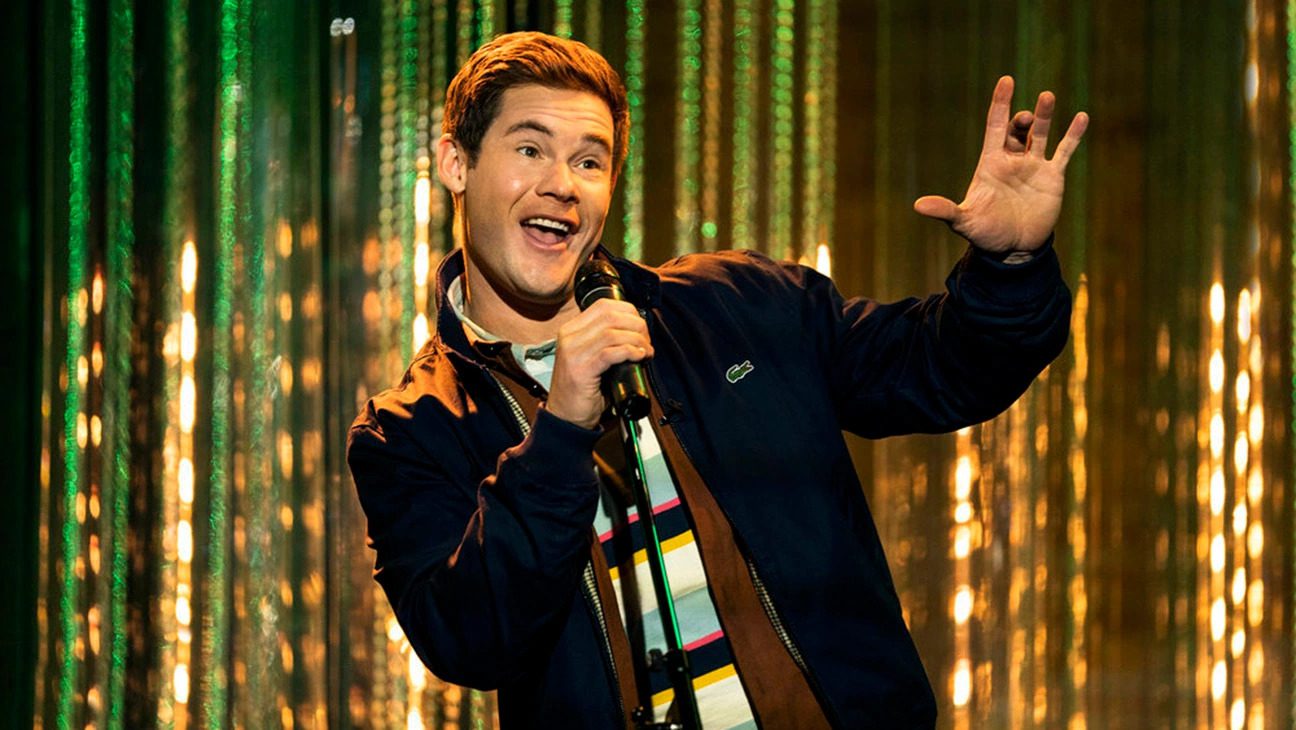Adam Devine on the Death of the Comedy
Have you wondered what happened to comedy films in recent years? They don’t seem to be made all that often – at least not ones that are released theatrically – and the ones that are made don’t tend to be very good. On a recent episode of Theo Von’s podcast This Past Weekend, actor Adam Devine, star of the Pitch Perfect movies, Mike and Dave Need Wedding Dates, and the HBO show The Righteous Gemstones (which is excellent and well worth your time), explained why comedies aren’t as common as they used to be and why the ones that are released tend not to be very good:
The woke stuff is the one most people could probably guess. Very little is allowed to exist without a “timely” message shoved into it, and that’s a comedy killer. Devine says that this is often at the behest of studio executives who want everything to have a modern socio-political connotation, which makes you wonder how many recent duds were perfectly fine movies until some activist in a suit demanded they have a message attached to them. One that comes to mind is Last Christmas, an awful movie I sat through because it took place in London at Christmastime and starred Emilia Clarke, so it scored a hat trick I had to reward. In the last third or so, Last Christmas stops being a soppy romantic comedy and becomes a lecture on Brexit and how everyone who agrees with it is a racist; it comes out of nowhere, and it saps away whatever fun the movie had (which, admittedly, wasn’t much). Whatever your feelings on Brexit, do you really want what’s supposed to be a light, fun Christmas movie to discuss it at length instead of decking your halls with boughs of holly? And hearing this from Devine, I wonder if that was always the plan or if someone with too much power insisted on it.
Devine also talks about how studios don’t want to greenlight smaller films, which comedies tend to be, because everything has to be a $200 million spectacle. This complements something Matt Damon said on an episode of Hot Ones about why smaller films rarely get made now:
This is also, Devine argues, why most comedies aren’t very good: so few are made that the ratio is not tilted in favor of quality, especially if the ones that do have woke forced on them. The connection makes sense; there was a time – one recalled by Von – when the raunchy comedy was making a comeback. It was the Apatow era, where The 40-Year-Old Virgin hit, and it spawned similar-themed comedies from Apatow himself and like-minded filmmakers. Around the same time, you had guys like Adam McKay and Todd Phillips making the likes of Anchorman, Old School, and The Hangover. What happened to those guys? McKay is making politically-minded stuff like Don’t Look Now (a global warming allegory so obvious the trailers felt like Greta Thunberg saying, “How dare you!?” in a Leonardo DiCaprio mask), while Todd Phillips has sworn off comedies because he can’t make a funny one without offending the perpetually offended – like, it’s safe to assume, studio executives. (We did get Joker out of the deal, though.)
Damon’s point about a lack of home video sales recalls Austin Powers: International Man of Mystery; that movie was a modest success at the box office, but it exploded on home video, and the result was two sequels that made 4.6 and 4.4 times what the original did, respectively, and turned the James Bond spoofs into box office juggernauts rivaling the biggest summer blockbusters. (Damon’s own spy series shook out in a similar way; The Bourne Identity made good money in theaters but was a massive hit on video, dethroning Harry Potter and the Sorcerer’s Stone as the most-rented movie of all time in its first week on Blockbuster shelves – ha-ha, Blabs – showing the studio how much it could make from the series once it was gone from theaters.) But those days are over; the Austin Powers movies were fun, loving send-ups of classic films, comedies anyone could enjoy, and that kind of movie, as Devine explains, isn’t usually allowed nowadays. As a result, comedies aren’t the good bets they once were, which is why studios won’t greenlight them, but the irony is that the studios and their interference are part of the problem.
Devine’s final reason is maybe the most upsetting, though. He argues that people don’t want to go to the movies anymore unless it’s something spectacular. I don’t know if that’s entirely true; I think people are more concerned with getting burned by something bad when they’re paying so much for a ticket and so little is worth seeing. That’s why the most successful movies of late are Barbie, which advertised itself as fun girls’ movie covered in pink, and Oppenheimer, a historical drama directed by a trusted filmmaker with a cast of great actors. Comedies, unfortunately, are no longer trusted outside of a Barbie. That’s why a really good movie like No Hard Feelings tanked; would you trust Jennifer Lawrence to make you laugh without wagging her finger at you? Unfortunately for that film, you probably wouldn’t. As a result, here we are, stuck with very few good comedies and, for the most part, whatever awful-looking dreck Adam Sandler (himself once a comedy sure thing at the box office) is producing for Netflix this week.







